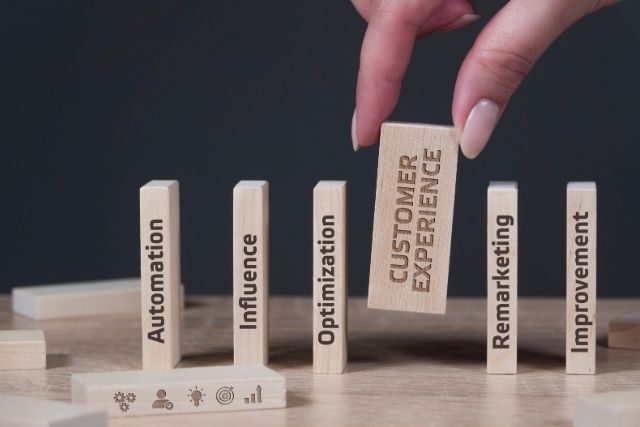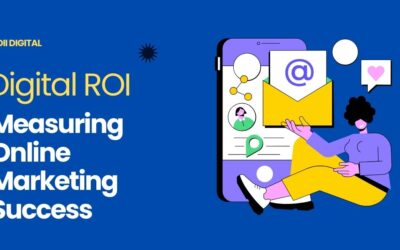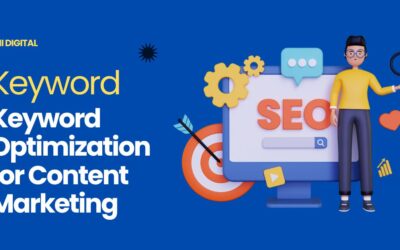Businesses aiming to grow must have a strong content strategy. Succeed in the digital age. In today’s highly competitive online landscape, having a well-planned and executed content strategy can make all the difference in attracting and retaining customers. I will discuss the value of content strategy in this article. Content strategy, the fundamental components of a practical design, creating a content calendar, using SEO strategies, and evaluating your system’s effectiveness using analytics and key performance indicators.
Understanding the Importance of Content Strategy
A key component of Internet marketing is content. It helps businesses communicate their brand message, interact with their target market, and build a reputation within their respective sectors. Businesses can strategically plan and create content to engage with customers at every stage of their buyer’s journey.
But what exactly is content strategy? It is the process of planning, creating, distributing, And controlling content to reach specific business goals. It involves understanding the target audience, Discovering what they want and need, and producing material that speaks to them.
One of the main benefits of content strategy is that it aids in establishing a strong online presence for firms. Businesses must stand out in the digital era when consumers are constantly barraged with information. Companies may establish themselves as thought leaders by creating pertinent, excellent content.
The Role of Content in Digital Marketing
The cornerstone for creating a solid internet presence is content. It aids companies in becoming thought leaders in their field and presenting their audience with insightful and valuable information. High-quality content enhances engagement, increases organic traffic to a website, and eventually results in conversions.
Regarding digital marketing, content is not just limited to blog posts or articles. It includes a range of media types, such as infographics, podcasts, social media postings, and videos. Each style has a certain function and targets a specific audience.
By diversifying their content strategy, Businesses may interact with customers through various channels and reach a larger audience.
Furthermore, content is crucial in search engine optimization SEO. Search engines like Google give websites with relevant, high-quality content priority. By including pertinent keywords and other search engines providing consumers with helpful information, businesses may improve and enhance the organic traffic to their websites and search engine rankings.
Benefits of a Well-Planned Content Strategy
A well-planned content strategy brings a multitude of benefits to businesses. It ensures consistency in messaging, maintains brand voice and identity, increases brand awareness, and fosters customer loyalty. A strategic approach to content production aids companies in being relevant and adapting to shifting customer preferences and demands.
Building confidence in a brand and brand awareness depends on consistency in the message. By producing material consistent with their brand’s voice and values, Businesses may create a distinctive brand identity and make a big impression on their target audience.

Moreover, a well-planned content strategy helps businesses increase their brand awareness. Companies may grab the attention of their target audience and broaden their reach by continuously releasing good content. It may result in more people visiting websites—social media followers, and, ultimately, more potential customers.
Last but not least, a strategic approach to content production enables organizations to change with the demands and tastes of their target audiences. Companies may determine what material connects with their audience and decide on their content strategy by evaluating data and monitoring trends. It helps businesses keep their competitive edge and stay one step ahead of the opposition.
Critical Elements of a Successful Content Strategy
Businesses must consider several key elements for optimal results when crafting a content strategy.
A successful content strategy is more than hoping for the best while producing arbitrary material. It necessitates thorough preparation, investigation, and execution. You can focus your efforts efficiently and provide the necessary outcomes by including the following crucial components in your content strategy.
Identifying Your Target Audience
For your material to be well received by those you want to reach, Knowing them as they are is crucial to who they are. Conduct market research, analyze demographics, and gather insights to comprehensively understand your audience’s needs, preferences, and pain points.
You may get insightful information to direct the process of creating your content by digging deeply into the psychology of your target audience. This information will enable you to customize your messaging, tone, and style to communicate with your audience and establish a genuine connection effectively.
Furthermore, understanding your target audience lets you choose the platforms and channels most suitable for distributing your content. Whether it’s social media platforms, industry-specific forums, or email newsletters, knowing where your audience spends their time will enable you to reach them more effectively.
Setting Clear Objectives
Clearly defined objectives are essential for measuring the success of your content strategy. Having precise and quantifiable goals can help direct your content development and assure alignment with your company objectives, whether to boost website traffic, create leads, or promote brand visibility.
They remember the SMART framework while defining objectives: Specific, Measurable, Achievable, Relevant, and Time-bound. This framework makes your goals well-defined, measurable, and practical.
By establishing clear objectives, you can regularly assess the performance of your content strategy and make data-driven decisions. It allows you to figure out what works and what doesn’t, allowing you to improve your strategy and content for better outcomes.
Choosing the Right Content Types
Businesses can access various material, including podcasts, infographics, videos, and blog entries. Choose the right content formats for maximum engagement and impact by being aware of your audience’s preferences and the best ways to reach them.
Each content type has its strengths and advantages. Videos may be more entertaining and aesthetically pleasing than blog postings, which are wonderful for developing thought leadership and giving detailed information.
It’s important to consider both the nature of your message and the preferences of your target audience when selecting the appropriate content kinds. You can grab your audience’s attention, keep them interested, and encourage appropriate behaviors by matching your content formats to their preferences.
Additionally, A wider audience might be attracted, and various learning styles can be catered to by varying your content kinds. While some individuals prefer to read, others prefer to watch or listen. You may accommodate varied tastes and improve the overall efficacy of your content strategy by providing a choice of content forms.
Developing a Content Calendar
A content calendar is crucial for organizing and planning your content creation efforts.
Importance of Consistency in Content Creation When it comes to content generation, consistency is essential. By developing a content calendar, businesses can ensure a regular flow of high-quality content, maintaining audience engagement and brand visibility. A consistent content schedule helps you stay organized, prevent last-minute content creation, and maintain a strategic approach.
Tools for Content Calendar Management

There are various tools available that can significantly assist in content calendar management. These tools, which range from straightforward spreadsheets to complex project management software, assist companies in streamlining their content development process, collaborating with team members, and maintaining deadlines and publication schedules.
Implementing SEO in Your Content Strategy
SEO is crucial to a productive content strategy. You may improve your website’s organic exposure and attract targeted visitors by optimizing your content for search engines.
Keyword Research for Content Optimization
Effective SEO is built on keyword research. Your likelihood of appearing in search results pages and attracting targeted visitors to your website may be improved by choosing pertinent keywords and effectively inserting them into your content.
Importance of Quality Backlinks
Backlinks are essential for SEO because they tell search engines that your material is reliable and authoritative. To improve your organic search rankings and make yourself more visible to potential consumers, concentrate on acquiring quality backlinks from traditional websites in your field.
Measuring the Success of Your Content Strategy
Your content strategy’s success must be evaluated to be optimized and improved upon continuously.
Key Performance Indicators for Content Strategy
Key performance indicators and KPIs help businesses assess the effectiveness of their content strategy. Website traffic, engagement, and social media metrics reach, and conversion rates can offer insightful data on the performance of your content and enable You to decide using data-driven reasoning to improve your plan.
Adjusting Your Strategy Based on Analytics
Regularly analyzing and interpreting analytics data is crucial for adapting and refining your content strategy. Increase your content production efforts by recognizing the popular material with your audience and what is not. Efforts to ensure optimal performance.
In Conclusion
Crafting an effective content strategy is a critical aspect of digital marketing success. You can optimize your company’s goals while maximizing your content generation efforts by comprehending the significance of content strategy, identifying your target audience, setting clear objectives, creating a content calendar, putting SEO techniques into practice, and measuring the success of your plan. Your content strategy may be a potent weapon for connecting with your audience, generating traffic, and eventually expanding your business in the digital sphere with proper design and execution.



